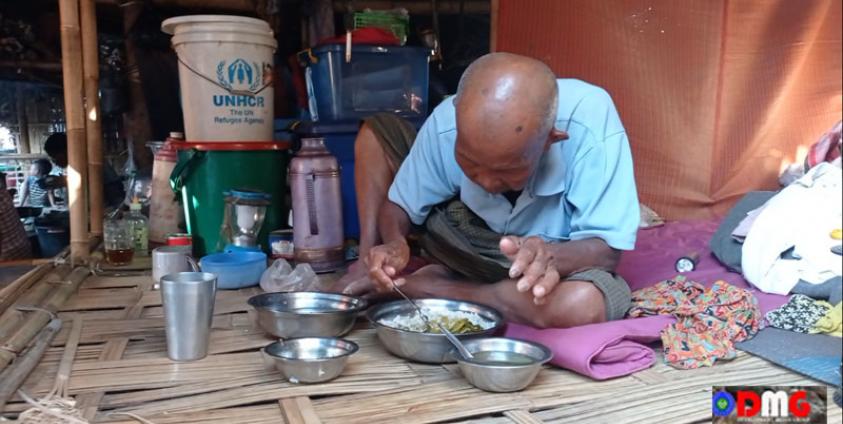Using the occasion of Human Rights Day on Saturday, local civil society organisations (CSOs) in Arakan State called for allowing local and international nongovernmental organisations (NGOs) and CSOs to carry out humanitarian operations without restrictions.
The regime’s ban on delivery of humanitarian aid to internally displaced people (IDPs) is against human rights norms, said a human rights activist from Arakan State who asked not to be named.
“Both the [junta] government and armed groups should not impose restrictions. It is against international human rights norms. We have a lot of difficulties delivering humanitarian aid to those who need it. On this Human Rights Day, I’d like to call for ending restrictions,” he said.
Despite the ceasefire reached last month between Myanmar’s military regime and the Arakan Army (AA), the regime has yet to lift travel restrictions on NGOs and social organisations supplying IDPs in Arakan State.
The regime is violating human rights in various ways in Arakan State and people feel unsafe, said Daw Nyo Aye, chairwoman of the Rakhine Women’s Network.
“Local residents and IDPs are facing starvation due to travel restrictions. Some pregnant women have died because of travel restrictions,” she said.
The World Food Programme (WFP) country director and representative in Myanmar, Stephen Anderson, said the United Nations humanitarian organisation is taking steps to provide aid to people in need in Arakan State.
“We hope that this ceasefire announcement will allow us to provide food and other relief supplies to our beneficiaries in central and northern Arakan State who have not received WFP assistance since mid-September,” Anderson told DMG via email.
The United Nations Office for the Coordination of Humanitarian Affairs (UNOCHA), meanwhile, said in a report last week: “Humanitarian organizations are now closely monitoring the impact of the informal ceasefire announced from 27 November and are hoping this may create space for the delivery of much-needed humanitarian assistance to IDPs and crisis-affected communities where access has been heavily restricted since September.”
The military and AA reached their informal truce on November 26, after some four months of hostilities that began in earnest in August.
About 20,800 people uprooted by the renewed fighting in Arakan State and Paletwa Township remain displaced, and the number of IDPs including those who were displaced by previous fighting and remain in IDP camps stood at about 95,000, according to the UNOCHA report on December 3.
Caption: A displaced person at Nyaungchaung IDP camp in Kyauktaw Township, Arakan State.








